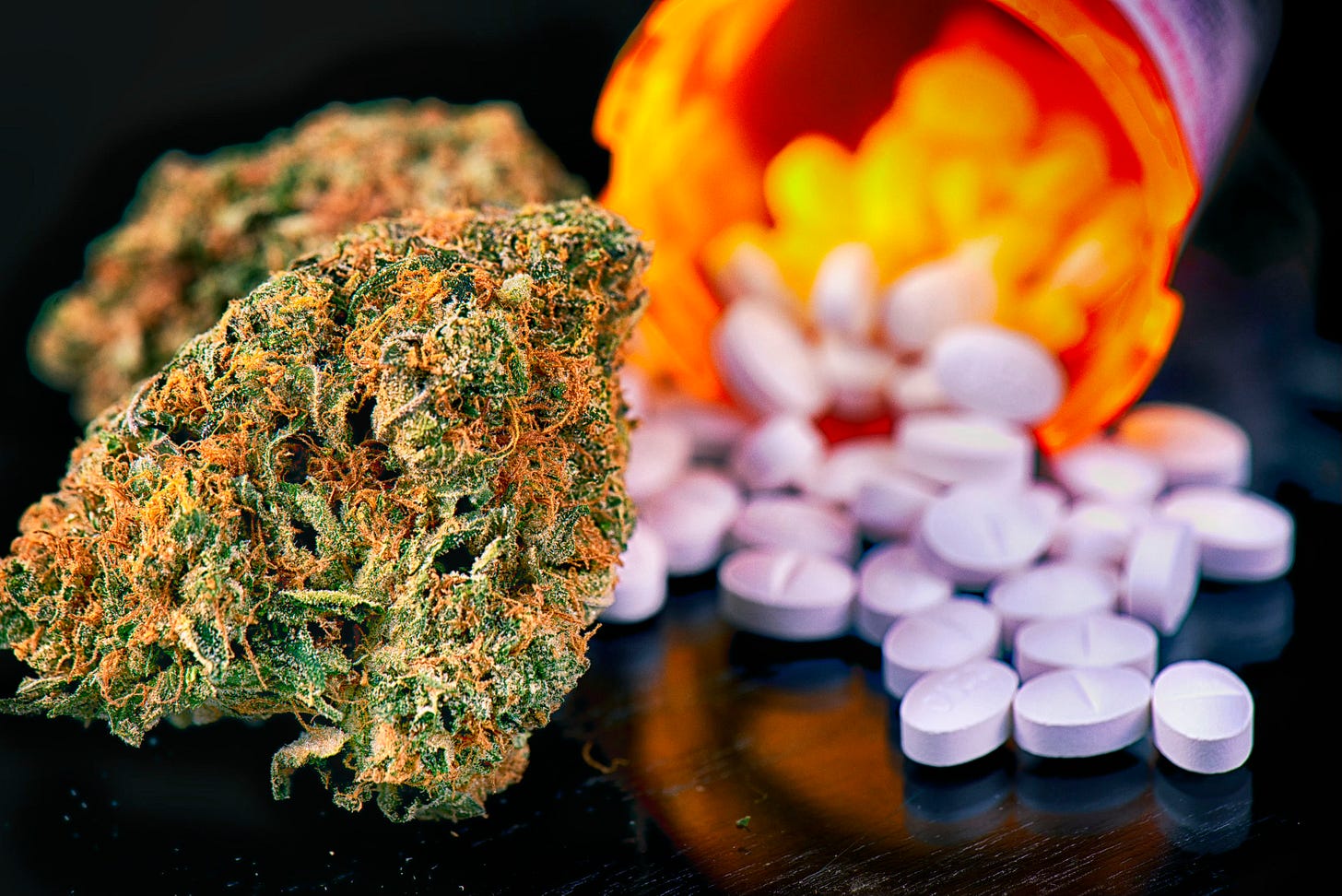How Medical Marijuana Is Quietly Solving America’s Biggest Problems
From Opioid Reduction to Safer Workplaces, the Data Speaks for Itself
Did you know that states with medical marijuana laws see 25% fewer opioid overdose deaths? Or that Medicaid spending drops by over a billion dollars when cannabis replaces prescription drugs? What if legal cannabis was actually making workplaces safer and reducing violent crime?
Medical marijuana is often debated, but here’s what most people don’t realize: it’s quietly transforming public health, workplaces, and even law enforcement—and the data proves it.
Let’s break down the most powerful, research-backed benefits of medical marijuana legalization.
1. Medical Marijuana Lowers Opioid Prescription Rates & Dependence
A Safer Alternative to Prescription Painkillers
Meet Sarah, a 52-year-old mother of two who was prescribed opioids after knee surgery. She worried about addiction but had no other options—until her state legalized medical marijuana. With cannabis, she managed her pain without opioids and avoided the cycle of dependence.
The Problem: The U.S. opioid crisis has claimed over 500,000 lives in the past 20 years. Many addictions start with a prescription.
The Cannabis Solution: Medical marijuana is a safer, non-addictive alternative for pain relief, reducing opioid prescriptions and overdoses.
The Evidence:
A 2014 JAMA Internal Medicine study found a 25% lower opioid overdose mortality rate in states with medical marijuana laws. (Bachhuber et al., 2014)
A 2022 BMJ study found that states with medical and recreational cannabis laws had significantly lower opioid prescribing rates. (Wen & Hockenberry, 2022)
Why It Matters: The more people switch to cannabis for pain relief, the fewer become dependent on opioids—potentially saving thousands of lives.
2. Fewer Workplace Injuries & Disability Claims
Pain Relief Without the Risk of Impairment
Imagine you’re a 45-year-old construction worker with chronic back pain. Your doctor prescribes opioids, but they make you dizzy, and you worry about getting hurt on the job. In states with medical cannabis, workers like you can choose a safer pain management option—and research shows it’s making a difference.
The Problem: Chronic pain and injuries lead to opioid use, workplace accidents, and long-term disability claims.
The Cannabis Solution: Medical marijuana provides pain relief without sedation, helping workers stay functional and reducing workplace accidents.
The Evidence:
A 2021 study found that workplace injuries among workers aged 40-62 dropped by 19.4% in states with medical cannabis. (Choi et al., 2021)
Another study found that older workers filed fewer disability claims in medical marijuana states. (Sabia et al., 2021)
Why It Matters: This isn’t just good for workers—it helps businesses and the economy by reducing lost productivity and healthcare costs.
3. Mental Health Benefits: PTSD, Anxiety & Suicide Prevention
A Life-Saving Tool for Mental Health
John, a veteran with PTSD, struggled with flashbacks and insomnia. After trying medical cannabis, he finally found relief.
The Problem: PTSD and anxiety disorders affect millions, leading to lost productivity, strained relationships, and even higher suicide rates.
The Cannabis Solution: Medical marijuana has been shown to significantly reduce PTSD symptoms and lower suicide rates.
The Evidence:
A 2019 study found that PTSD patients who used cannabis saw significantly fewer symptoms than those who didn’t. (Bonn-Miller et al., 2019)
A 2013 study found that medical marijuana laws were associated with a 10% reduction in suicide rates among young men aged 20-29. (Anderson et al., 2014)
Why It Matters: For veterans, first responders, and trauma survivors, cannabis is proving to be a life-saving mental health tool.
4. Healthcare Savings: Lower Prescription Costs & Reduced Medicaid Spending
How Cannabis is Saving Taxpayers Billions
What if legal cannabis could save taxpayers over $1 billion a year?
The Problem: The U.S. spends billions on prescription drugs—many of which could be replaced by cannabis.
The Cannabis Solution: States with medical marijuana laws see lower prescription drug use, leading to massive savings for Medicare and Medicaid.
The Evidence:
A 2017 study found that Medicare prescription costs dropped by $165 million per year in states with medical marijuana laws. (Bradford & Bradford, 2017)
A 2022 study estimated that Medicaid spending dropped by over $1 billion from 2011-2019 in medical marijuana states. (McMichael et al., 2022)
Why It Matters: Less reliance on expensive prescription drugs means lower healthcare costs for everyone.
5. Crime Rates Drop After Medical Marijuana Legalization
The Myth of Cannabis and Crime
Think cannabis increases crime? The data says otherwise.
The Problem: Opponents of legalization claim that cannabis leads to higher crime rates—but studies show the opposite.
The Cannabis Solution: Legalizing medical marijuana reduces black market activity and allows police to focus on serious crimes.
The Evidence:
A 2017 study found that violent crime dropped by 13% after states implemented medical marijuana laws. (Gavrilova et al., 2017)
A 2019 study found that burglary, theft, and robbery rates declined by 20% in states with medical marijuana dispensaries. (Chu & Townsend, 2019)
Why It Matters: Legalizing cannabis doesn’t make communities more dangerous—it actually makes them safer.
Final Thoughts: The Biggest Wins from Medical Marijuana Legalization
Medical cannabis is more than just an alternative medicine—it’s changing lives. If you take away one thing from this post, let it be this:
Fewer Opioid Prescriptions & Overdose Deaths – Cannabis provides a safer alternative to opioids.
Workplace Safety & Disability Reductions – Fewer injuries, better pain management, and lower disability claims.
Mental Health Improvements – PTSD relief, lower suicide rates, and reduced anxiety.
Healthcare Savings – Billions in reduced prescription drug spending.
Lower Crime Rates – Less violence, fewer drug-related arrests, and safer neighborhoods.
If this post changed how you see medical marijuana, share it with someone who needs to hear this.
Disclaimer: The information provided on this blog is for educational purposes only and is not a substitute for professional medical advice. Always consult your healthcare provider before starting or changing any treatments, including cannabis use.




